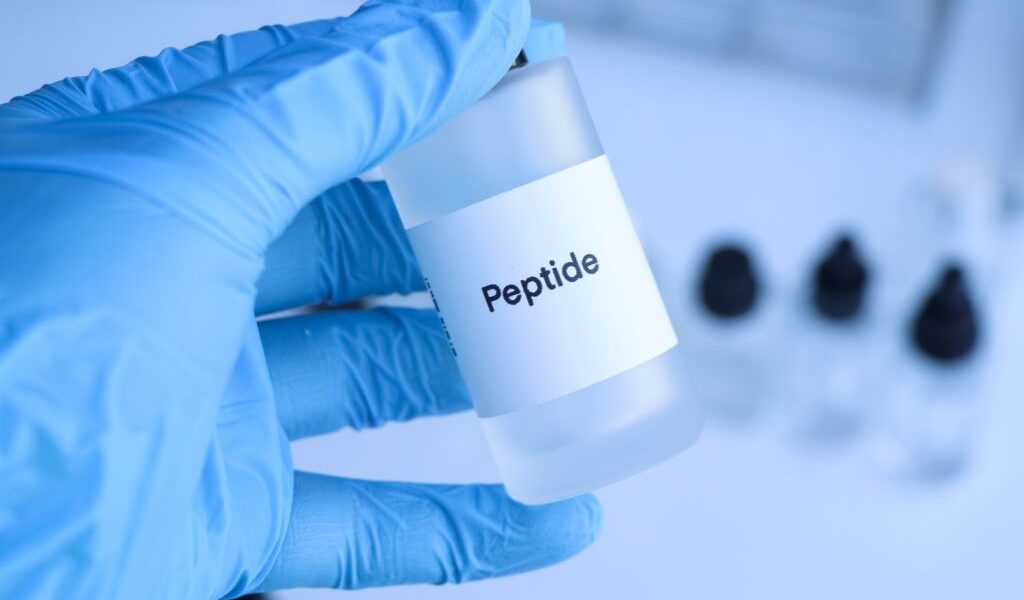-
Table of Contents
Peptides Explained: How These Small Molecules Can Transform Your Wellbeing
Peptides have garnered significant attention in recent years for their potential to enhance health and wellbeing. These small molecules, composed of short chains of amino acids, play a pivotal role in various biological processes. This article delves into the science behind peptides, their benefits, and how they can be integrated into daily life for improved health outcomes.
What Are Peptides?
Peptides are short chains of amino acids linked by peptide bonds. They are smaller than proteins, which are long chains of amino acids. Peptides can be naturally occurring or synthesized in laboratories. They serve as building blocks for proteins and play critical roles in various physiological functions, including hormone regulation, immune response, and cell signaling.
Types of Peptides
There are several types of peptides, each with unique functions and benefits:
- Signal Peptides: These peptides help in cell communication and signaling, influencing various biological processes.
- Carrier Peptides: They transport essential molecules to specific sites within the body.
- Enzyme Inhibitor Peptides: These peptides inhibit the activity of specific enzymes, which can be beneficial in treating certain diseases.
- Antimicrobial Peptides: They possess antibacterial, antifungal, and antiviral properties, helping to protect the body from infections.
Health Benefits of Peptides
Peptides offer a range of health benefits, making them a valuable addition to wellness routines:
- Anti-Aging: Peptides like collagen peptides can improve skin elasticity, reduce wrinkles, and promote a youthful appearance.
- Muscle Growth: Peptides such as growth hormone-releasing peptides (GHRPs) can stimulate muscle growth and enhance athletic performance.
- Weight Loss: Certain peptides can boost metabolism and aid in fat loss.
- Immune Support: Peptides can enhance immune function, helping the body to fight off infections more effectively.
- Wound Healing: Peptides can accelerate the healing process of wounds and injuries.
Case Studies and Research
Several studies have highlighted the potential benefits of peptides:
- A study published in the Journal of Clinical Endocrinology & Metabolism found that growth hormone-releasing peptides significantly increased muscle mass and strength in elderly participants.
- Research in the Journal of Investigative Dermatology demonstrated that collagen peptides improved skin hydration and elasticity in women aged 35-55.
- A study in the International Journal of Obesity showed that certain peptides could reduce body fat and improve metabolic health in obese individuals.
How to Incorporate Peptides into Your Routine
Integrating peptides into your daily routine can be straightforward and beneficial. Here are some ways to do so:
- Supplements: Peptide supplements are available in various forms, including capsules, powders, and injections. Consult with a healthcare provider to determine the best option for your needs.
- Skincare Products: Many skincare products contain peptides that can improve skin health and appearance. Look for products with ingredients like collagen peptides or copper peptides.
- Diet: Consuming a diet rich in protein can naturally increase peptide levels in the body. Foods like eggs, fish, and dairy products are excellent sources of amino acids.
Potential Side Effects and Considerations
While peptides offer numerous benefits, it’s important to be aware of potential side effects:
- Allergic Reactions: Some individuals may experience allergic reactions to certain peptides. Symptoms can include itching, swelling, and difficulty breathing.
- Hormonal Imbalance: Overuse of hormone-related peptides can lead to hormonal imbalances, which may cause adverse effects.
- Digestive Issues: Oral peptide supplements can sometimes cause digestive discomfort, such as bloating or nausea.
Consulting with a healthcare provider before starting any peptide regimen is advisable to ensure safety and efficacy.
Conclusion
Peptides hold significant promise for enhancing health and wellbeing. From anti-aging benefits to muscle growth and immune support, these small molecules can have a profound impact on various aspects of health. By understanding the different types of peptides and their potential benefits, individuals can make informed decisions about incorporating them into their wellness routines. As research continues to uncover new applications and benefits, peptides are likely to become an increasingly important tool in the pursuit of optimal health.
